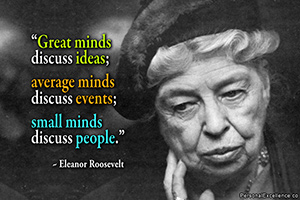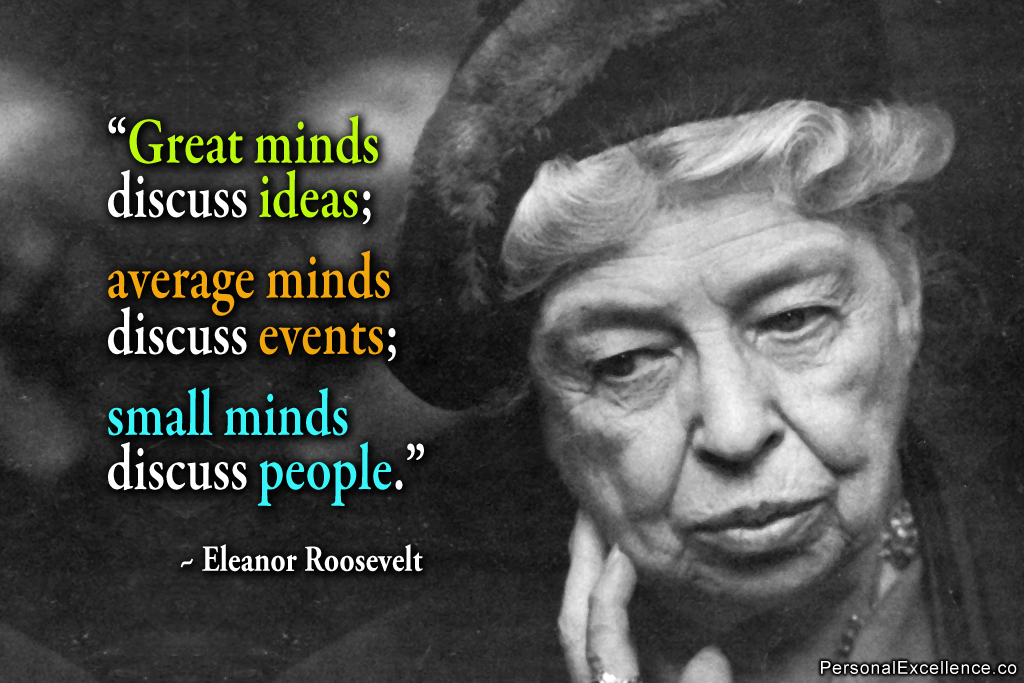This is part 1 of the most complete fasting series you’ll ever find online. If you’re new to fasting, get the full background on what fasting is, its benefits, and more below. Access all my articles on fasting: The Fasting Series.

(Image: Valentyn Volkov)
“The most vehement objections to fasting are made by those who have never missed a meal in their lives.” — Dr. Herbert Shelton (1895-1985)
In the past couple of days, I’ve been reading up about fasting with much interest. I intend to try a water fasting experiment myself starting Feb 4, 2011 (Friday) and will be updating daily with a journal of my experience.
Disclaimer: This guide is only provided for informational purposes. I’m not a fasting expert or medical doctor and I’m only sharing my experience with fasting. Fasting has its risks. You agree that you use this resource at your own risk.
What’s Water Fasting?
Fasting is the process where you abstain from food and/or water for a period of time. In water fasting, you don’t eat but you are free to drink as much plain water as you want. A popular form of fasting is juice fasting, where you consume nothing but juices (such as greens or fruit juice).
Fasting should not be confused with starving, where one suffers from a severe lack of nutrition, vitamins, and minerals. During fasting, your body burns your fat reserves (adipose) for energy. The person does not suffer any deficiency of protein, vitamins, minerals or fatty acids. Starving happens when a body has no fat reserves to burn (happens for anyone with body fat from 7-10%; I will elaborate further below) and starts using its own muscles and organs for energy instead. Carrington (Physical Culture, 1915) put it well in these words:
“Fasting is a scientific method of ridding the system of diseased tissue, and morbid matter, and is invariably accompanied by beneficial results. Starving is the deprivation of the tissues from nutriment which they require, and is invariably accompanied by disastrous consequences.”
Starving happens when fasting ends. The amount of time one can fast without going into starvation mode depends on the individual, such as their percentage of body fat, their body, body condition and so on. Believe it or not, the average person can last 40 days (!!) just by drinking water alone (please do not attempt to do this yourself without doing due research).
According to A. J. Carlson, who was a Professor of Physiology at the University of Chicago, he stated that a healthy, well-nourished man can live from 50 to 75 days without food, provided he is not exposed to harsh elements or emotional stress. Loren Lockman, the founder of Tangle Wood Fasting Center, has been supervising people through fasts in the past 10 years, from fasts as short as a few days to as long as 10 weeks. If you do a simple search on Youtube for “water fasting log”, you’ll find vlogs of different people who have completed 10-day, 25-day, and 40-day fasts.
Why Fast? (Benefits of Fasting)
Why fast? That’s a perfectly valid question.
I first heard about fasting when I was young, in primary school. Every year, there would be mentions about fasting. For example, during the Physical Education classes, the teachers would exempt the Malays from doing sports because they were fasting. These students would also not eat during recess breaks. I later found out that this is a practice followed by Muslims, whereby they refrain from eating and drinking from sunrise to sunset every day, for a month (Ramadan). This happens every year.
At that time I never thought much about it. I thought that it must be an act that required a lot of discipline and self-control so I was respectful of those who followed that. I didn’t think I would be able to go without food for a day, from morning to night. I thought I’d probably die or become nutritionally deprived.
Fast forward to today and things have changed.
Natural Way To Heal
In the past few days, I’ve been reading up about fasting. I’m quite intrigued to learn about the practice of fasting and its many purported benefits.
Apparently there is a small but actively growing interest in fasting as a holistic form of wellness and therapy. I won’t turn this article into a fasting thesis but suffice to say there have been many accounts about how fasting is a natural way for the body to heal. (I’ll include links and resources at the end of this post where you can check them out.) When left to its own, our body is capable of healing itself of many ailments and illnesses. Eating and taking medication interfere with our body’s natural ability to heal. This is why we rarely have an appetite when we’re sick — it’s because our body does not want to ingest anything and wants to go through the self-healing process. Check out this excerpt by Loren:
…Virtually all symptoms that we experience are evidence that the body is attempting to heal itself. Sinus congestion, fever, swelling, even pain, are created by the body on purpose, and are nothing more than evidence that the body is working to address some problem and restore balance, or homeostasis. When the body is given an opportunity to cleanse and heal, all manner of symptoms may arise, and they often do.
Sometimes, those who don’t understand this will believe that the fast has made them sick. In fact, by ceasing to squander the body’s energy on unnecessary activities (including, temporarily, eating!), much more energy is available to cleanse and heal. The appearance of symptoms simply indicates that these processes have begun. It is always the body that heals itself. Remedies of all kinds generally treat symptoms, not causes, and it is only by eliminating the cause of a problem that we can expect to solve the problem.
Taking a decongestant may relieve the discomfort, but it does nothing to eliminate the actual problem, which was a toxic substance in the body. With its means of elimination paralyzed by the drug, the body is forced to store these toxins, furthering the body’s build-up of them, and eventually creating chronic disease.
If you’ve been eating a Standard American Diet for 20, 30, 40 years or more, your body probably has a lot of stored debris. Additionally, as the body becomes overburdened with the toxins brought in from outside (exogenous) sources from our diet, water, and the environment, it’s also becoming overburdened with toxins created inside the body (endogenous). These endogenous toxins are the waste products of cellular metabolism. When a system is heavily burdened, it’s unable to process and eliminate the cellular wastes quickly enough, and these wastes build up.
These very same toxins are kept in our fat cells or adipose tissues. Since we’re constantly eating every day, we provide our bodies with a ready stream of glucose for energy which leaves our bodies with little reason to break down our adipose tissues. Glucose is our body’s immediate preferred fuel. Only by cutting out our glucose source (by not eating, eating less carbs, or eating less) will our body turn to our reserves for energy. This process is called catabolism/ketosis (I talk more about this further down in the article). This is when the toxins get processed, broken down and released, resulting in a physically, mentally, emotionally and spiritually healthier you.
Benefits of Fasting
There have been many reported benefits of fasting, including but not limited to:
- Weight loss
- Fat loss
- Improved physical complexion
- Increased mental clarity
- Emotional detox / Purging of past baggage
- Physical detox / Body cleanse
- Vividness of dreams
- Increased spiritual connection
- Increased creativity
- Improving one’s relationship with food
- Reset poor eating and poor lifestyle habits
Why I’m Embarking on this Fast
1. Immense Benefits of Fasting: Mental Clarity, Increased Creativity, etc.
My interest in embarking on a fast is multi-fold.
Firstly, I’m very curious about the many benefits that I’m reading about fasting. I want to test it out for myself to see if they’re true. I’ve been reading accounts of how people would feel heightened levels of mental clarity, significantly increased creative output, inner calmness, a new-found relationship with themselves, supremely vivid dreams, and so on during their fasts. These tend to happen from Day 3 of their fast. A big reason is that since there’s nothing to digest, our body stops directing its energy to our digestive systems and instead directs them to our brain, leading to higher mental output.
In particular, I’m quite keen on this benefit and possibly having higher creative output. :) I’ve been experiencing increased bouts of creativity from my recent raw food experiment, so I can imagine how much stronger this would be during a water fast!
2. Emotional Purging
Secondly, I’m quite keen on the process of emotional and physical purging. I imagine my body must have lots of toxins piled up from years of eating heavily processed and junk food. It’d be nice to cleanse my system through this fast, kind of like a system reboot.
When I went on a 21-day raw-food trial in 2009, I went through a phase in the middle of the trial where I had a sudden craving for meat (at that time I was on a vegetarian diet). This was interesting as I had never thought about eating meat for all the years I was a vegetarian. I knew that this “craving” was not coming from a physical place, but an emotional place. Most of our physical cravings are really that — food desires tied to our emotions, which are in turn tied to our past memories.
After pushing past this desire, that craving disappeared and in its place was anger and negative memories of something that happened to me in the past (I subsequently worked through this and blogged about it here). This was one of the first times when I realized that many of our physical sensations (hunger, cravings, ailments) are actually unprocessed emotional and mental baggage that manifest themselves on a physical level.
Given that food is something that we eat daily and get digested to become a part of our body, and that food/eating is commonly marketed as a symbol for happiness, it’s not surprising that we bury many issues through eating without realizing it. These issues in turn become a part of our body so to speak — by eating out of anger/negativity/sadness/stress, the food we eat piles on our body as excess weight or “baggage.” So I’m really curious to see what will come out of my fast where I’m not going to eat at all.
3. Enabling Others To Learn and Grow
The third reason is that I’m always looking to explore new ways to grow and to share them on PE so others can learn from my experience. By fasting and publicly sharing about this here at PE, I imagine that this will be a helpful resource to those who might be interested to try it in the future.
4. Weight Loss
Weight loss is another obvious benefit of a water fast. Those who have fasted properly, broken the fast in the right way, and maintained a healthy diet thereafter have kept the weight off.
My weight has been creeping up over the years, largely because I tend to emotional eat. About 8 years ago (2003) I was about 58.5–60kg (129–132lbs). But in the past few years, I have been gaining about 0.9kg (2lbs) each year.
At this point of writing (Feb 2011), I’m 65.5kg. That’s not overweight for my height of 1.7m (5′ 7″ — I’m considered tall for an Asian female), but if I continue this pattern, I would likely be overweight in a few years’ time.
I hope that through this fast, I will get to remove my excess weight and reset my diet. As I mentioned above, there are many reasons why I’m starting on this fast. Weight loss is simply one of them. There are many — arguably more important — emotional, mental, physical (detox) and spiritual benefits that can come out of a water fast, so bear that in mind!
Of course, it’s important that you change your relationship with food and switch to a 100% healthy diet after your fast. If you use fasting as an excuse for quick weight loss and you don’t resolve your eating issues and continue your bad eating habits before the fast, then whatever weight you lose during the fast will surely return.
I will be sticking to a healthy diet post-fast so I’m looking forward to shedding my excess weight and keeping them off.
5. Building a New Relationship With Food
Last but not least (and this is related to the second reason), I’m interested to build a new relationship with food.
After going on a raw food trial this year, it made me see food in a whole new light and realize how much I was using food as an emotional outlet (even more so than I had realized). It also made me understand what it feels like to be hungry at a physical level, rather than eating to satisfy an emotion. The fact is that most of us in the modern society eat to fill an emotion rather than out of true hunger. It doesn’t help that many foods sold in supermarkets and even restaurants today contain a high level of sugar, salt, and additives, which worsen emotional eating problems.
I read with interest of raw foodist Frederick’s 23-day fasting account, where he lost the physical sensation of hunger after the first 3 days. For the remaining 20 days, he stopped feeling hungry for food. I thought that must be a really interesting state to be in — it basically rips apart everything we hear about food and eating today, about how we need to have 3 meals a day, that skipping a meal is bad for health, and so on.
Water fasting will probably make me see food in a different light than how I’m seeing it now. The people who’ve undergone fasting talk about how they felt hunger in the first 1-3 days and stopped feeling physical hunger after that. It also made them realize what true hunger really feels like.
True hunger isn’t the feeling that most of us think it is – signs like emptiness of stomach, stomach growls, thinking that you need to eat, gastric pain (by the way, abdominal pain stems from deeper issues, so if you experience it you should get it checked), etc. are just what we think is hunger. Real hunger is felt from our throat (not our stomach nor head). The average body has fat reserves (complete with the nutrients, vitamins and minerals) that can last one at least 40 days without food (unless you’re very thin, pregnant, emaciated, etc.).
Someone who has a true ideal relationship with food and his/her body will eat only when truly hungry, stop when body is full, not experience any sudden cravings or desire to eat, and will be in a healthy body weight and fat percentage, because the body has no use for any excess fat whatsoever (unless you live in an extremely cold climate like Antarctica).
How Long Should One Fast?
As I’ve mentioned above, our body has sufficient fat reserves to last us for 40 days, with some stretching as long as 10 weeks. As long as we have healthy amounts of fat reserves, our body will not burn large amounts of muscle as an act of natural preservation. By default, our body gets energy in this order:
(Note: I’m not a scientist or doctor nor do I claim to be one. The information below is from my personal research and is outlined for your benefit. When in doubt, do your own research.)
Stage 1: Daily food
The first source is glucose from our daily food consumption. This is the most ready energy source. Since we normally eat every day, our body gets a ready supply of energy source here without needing to move to stage two. If you eat excessively, your body gets more than it needs and stores the excess as fat reserves.
Stage 2: Glycogen from liver (Glycogenolysis)
The second source is glycogen from our liver. This converted via glycogenolysis and happens when we don’t eat from four to eight hours. Depending on the glycogen reserves you have, this energy can last you for about 12 hours (if you don’t eat).
Stage 3: Glycogen from our muscles
It’s easier to get energy first from glucose, then protein, and then finally fats. This is why our body tries to get energy from glycogen from our muscles after it finishes burning the glycogen from our liver. This process can happen for a day or two before our body realizes that something is amiss. It then switches to ketosis.
Stage 4: Full Ketosis (Fasting)
Stage 4 occurs when our body realizes that it needs to stop wasting muscles since it’s needed for survival. It then switches to ketosis, where it burns fat from our adipose tissues, i.e. our fat resources. This is known as the protein or muscle sparing mode because our body knows that our muscles and organs are important for the proper functioning of the body, and upon realizing no more energy is coming in, now switches to fat as the energy source. Our fat is converted into ketones which can be used for energy. This happens as long as there are still fat reserves on our body.
Since each pound of fat is 3,500 calories and our daily energy expenditure is about 1,500-2,000, that’s quite a lot of calories for the body to burn during the fast before it will move to the next stage (starvation). For most people, it’s around four weeks to 10 weeks (or even longer) depending on your fat percentage, body weight, body condition and so on. Girls tend to have higher fat reserves/percentage than guys, while guys tend to have a higher absolute body mass.
During water fasting, it is said that full ketosis is usually reached at approximately 48 hours for women and closer to 72 hours for men. Note that there will still be muscle loss during full ketosis, just at a lower rate than stage three. Dr. Fuhrman, who has fasted thousands, states that it decreases to less than 0.2 kg per day once full ketosis is reached. (Source: All About Fasting)
Stage 5: Starvation (eventually leading to death)
Here, our body gets energy from the protein in our muscles and organs. Our body will only get energy from protein when our fat reserves run out in stage 4. This is the starvation mode and highly dangerous — it will eventually lead to death. Fortunately, our body alerts us before we enter this stage via a sudden, intense urge of hunger (whereas in stage 4, there will not be any physical hunger sensations). Real hunger is marked by a hunger sensation from the throat (not the stomach or the mind). Most fasts end before one ever reaches this stage.
Because of the way our body breaks down energy, fasting for 1 day or 3 days (depending on how long you take to reach ketosis) is incomparable to the benefits one can experience from a longer duration of fasting, say 21 days, 30 days or 40 days.
- Firstly, when you just fast for one to two days, your body never enters full ketosis (Stage 4), which means the toxins never get processed. Not only that, but your body also burns your glycogen (stored in your liver and from your muscles) on typically days 2-3, which means you lose a percentage of your muscles.
- End of Day 3 is right at the point when your body is about to enter ketosis. That means not only do you not get to detox, but you have also lost a portion of your muscles for no reason! Whereas if you fast for a longer duration, at least the initial muscle loss is offset by the benefits you will experience in the later stages of the fast from ketosis.
Hence, if you want to really experience the full effects of a fast, it makes sense to do a fast longer than just a few days, such that you experience the true detoxification benefits from burning your stored fat cells. If doing a long fast is not an option for you, I personally think it’s better if you do intermittent fasting for half a day rather than repeatedly fast for one, two, or three days each (where you are just breaking down more of your muscles). Fasting for three days for three times is NOT the same as fasting for nine days. Whatever fast you choose to do, please do your research. There are fasting centers where experienced professionals supervise the process if you prefer doing it in a center.
Update: Seems like Dr. Ben Kim, owner of a fasting and chiropractic clinic, has the same opinion as well from his article: Is Fasting 1 Day a Week Good for Your Health?
Death during Fasting
It should be noted that it is possible for one to die during fasting, though in such (extremely rare) cases the cause of death isn’t due to the fast itself, but because there are damages in the body which are absolutely irreversible.
From Hygienic Review: Fasting by Herbert Shelton, Chapter 27:
Mr. Macfadden records the case of a man whose heart beat fell to twenty and was so faint it could scarcely be felt, after three weeks of fasting. It quickly rose after the patient took some nourishment. (Natural Cure for Rupture–p.p. 36-37). Abnormally slow pulse is seen in rare cases of extreme debility, especially in those who have for weeks, months or years prior to the fast, been in the habit of taking stimulants. A complete withdrawal of the stimulants results in a great slowing up of the habitually excited activities of the body. Mr. Carrington says that some of these cases die, although I have not seen it.
He says: “The long-deferred crisis is at hand. Either the patient will recover the expended powers, and live; or, if wasted to such an extent that recovery is impossible, will die, during the fast. This is the most frequent, if not the only cause of death that occurs during cases of protracted fasting, when death occurs before the return of natural hunger. Such cases never die from starvation; it is a physiological impossibility for them to die during a fast before the return of natural hunger–unless the vital powers have previously been so wasted as to render their recuperation impossible–death being due to this failure; and it will thus be seen that the real cause of death is, again, previous mal-treatment–death occurring in spite of, and not on account of, the fast. Had the fast been instigated, in such cases, at an earlier period, the vital powers might have been sufficiently strong to have withstood the shock–recuperation instead of failure would have resulted; i.e. instead of death.”–Vitality, Fasting and Nutrition.
My Experiment
I intend to fast for 21 days, starting from Friday 12am (4 Feb) to Thu 11:59pm (24 Feb). I will not eat anything in these 21 days and will only drink water. Coincidentally it’s the same length of time I recommend when it comes to cultivating new habits (though I don’t see fasting as a habit, at least not as far as conventional habits go like flossing teeth or meditating daily). My other work appointments during this 21-day period are 1-1 coaching and should be manageable.
Daily Journals
I intend to post about my fasting experience via daily logs at PE. During this experiment, I’ll share what I’m going through as transparently as I can, from the pros to the cons. This includes anything that I experience, including emotional (emotions, mood changes), mental (insights, thinking, mental power), physical (weight, complexion, physical sensations), spiritual (vividness of dreams, etc) where relevant. I’ll also measure and record the amount of water that I drink daily. I intend for the journals to be helpful to those who are curious about fasting or who intend to try out fasting for themselves in the future.
Fitness / Exercise
During a fast, your body is in healing mode. It’s burning away the waste in your fat cells, unlike the normal days when it’s burning from glucose. Trying to engage in any physical activity or normal routine will result in precious muscle being burned just to keep up with your energy needs, since muscle is a more efficient energy fuel than fat. Not only does this prevent the healing from taking place (burning of fat cells), but you also waste precious muscle in the process.
To experience the full benefits of a fast, you should rest much as you can and limit the physically challenging aspects of your regular routine. If you plan to exercise or engage in physical sports, then schedule your fast to another time. I’ll be using my energy for brain work during my fast. I might go for light strolls, but otherwise, that’s about it.
From what I’ve read, the first one to three days are the hardest because that’s when your body adjusts to not getting energy from glucose. After the initial adjustment is done, the physical sensation of hunger disappears. The days beyond should be progressively easy, as long as I keep my activity level light.
Throughout the fast, I’ll also be listening to the signs of the body on whether I should break the fast before-hand – if I suddenly feel intense hunger or I get some adverse reaction, I’ll break the fast.
Enemas/Cleanses
I will not be using any enemas or salt water flushes during the fast. I’m actually not a big fan of methods that use forceful expulsion (whether through vomit or “cleansing systems”) because (a) I believe strongly in holistic healing and the body’s ability to self-heal, and (b) such methods usually create a vacuum and force out everything, including the good stuff. If it’s something that should be healed, I believe the body will be able to cleanse it itself.
For the same reason, I’m also not intending to take any supplements.
Safety? / Concern
Most reactions surrounding a fasting decision are rooted in fear. I know because I can imagine myself reacting that way if someone tells me that he/she wants to fast. “What? You want to fast? No! It’s dangerous! You’ll die! It’s not good to go hungry!“
I appreciate whatever concern that may be sent my way, but honestly, I’ve been reading very extensively on the subject of fasting and I’m very informed about what I’m doing right now (as informed as can be without having gone through the process). Without being brash, there’s a high likelihood I know more about the topic than you do due to all the research I’ve already done, unless you have direct experience with fasting (of one week or more). I’ve named it as an “experiment” not because I’m just jumping in and winging it — it’s because I see this as a first-time trial and I’m curious to see if the benefits purported by fasting experts are true.
At this point, the only way for me to truly know whether this is good or not is to do it myself, which is what I’m doing now. Anything else will really just be speculation based on hearsay, personal beliefs, and mental projections on whether it’s good or bad. Right now I’m keeping an open mind on the merits and the downsides via the results I experience on this journey. This is also why I’m transparently sharing what I’m going through on the blog here every day.
Once again, our body has sufficient fat reserves to last us for at least 40 days. I’m well in the acceptable weight range with sufficient body fat that can be burned before I enter starvation mode.
Of course, I’m not going to press on and force myself not to eat if I’m convulsing and suffering some adverse bodily reactions or anything like that. I’ll stop if something seems amiss. I’m doing fasting at my own risk, and by sharing this guide I’m not endorsing fasting or telling you to fast in any way, but simply sharing my own experience.
If you have any concerns about fasting or what is a healthy fasting duration, I highly recommend you re-read what I’ve written above and also check out the resources at the end. These include materials by doctors and experts who have been doing it and overseeing others’ fasts for almost all their lives.
DISCLAIMER: Do Your Research Before Trying Any Fasts
If you’re interested to join in the fast, do spend the time to read up (I’ve provided resources below) and proceed at your own risk. I’m not a fasting or a medical expert. I also cannot be made responsible for the decisions you make for your health.
What I’ve written may be subjected to errors but it is the best knowledge I have based on my extensive reading on the topic at the point of writing. I’m writing this series and journaling my fasting process as a way to share my fasting journey in case any of you are interested. It is meant as a supplementary and not the primary resource to use should you decide to fast yourself.
Who Can Fast?
It goes without saying that fasting is not for pregnant ladies, thin/extremely thin people who have limited fat reserves, people taking heavy medication, people with severe illnesses and conditions, etc.
According to Albert Mosséri, a fasting expert who has more than 50 years of experience supervising fasts, the following people should not fast (source):
- People suffering from a true heart condition (Mosséri distinguishes a “true” heart condition from a simple diagnosed heart condition).
- People suffering from tuberculosis.
- Severely underweight people.
- People who take tranquilizers or sedative drugs regularly.
- Diabetics who take insulin or other drugs and have been taking them for 2 years or more.
- People who had their thyroid gland taken out.
- People with severe mental illness.
- Elder people of 80 years or more of age.
- Pregnant women.
- Cancer cases.
Here’s what Loren Lockman, an experienced faster with a decade of experience supervising fasts, has to say about age limits for fasting (Fasting Interview with Loren Lockman, Q2):
There are no limits. If one is alive, they would benefit from fasting. Our oldest client turned 91 while fasting with us, and our youngest was 2.5. The 91 year old suffered from cancer of the larynx and showed up with a tumor in his throat so large it was painful to swallow, breathe, or speak. He fasted 32 days and when he returned home after 6 weeks, they rushed him to the hospital expecting to find that the tumor was much larger and threatening his life, and planned to do an emergency tracheotomy. They could not find a tumor.
I know that there is a contradiction here as Loren mentioned a fasting client with cancer while Albert said people with cancer should not fast. Here I am sharing points of view by two different fasting experts for your reference.
When in doubt, please consult someone with experience in fasting. This does not include doctors or medical experts who do not have any knowledge in the area of fasting.
Preparation
As preparation for my fast next Monday, I intend to eat minimal fruits and juice over the weekend. This will help me ease into the 7-day fast or however long it’s going to be. As mental preparation, I’ve been trying out a light fast of just oranges and apples today and it’s going well so far. :D
Fasting Interview
As my fasting experiment has ignited the interest of a number of readers, I’ve taken the liberty to interview Loren Lockman with top questions from the readers. Please find the completed interview (with 16 questions in total) here: Your Fasting Q&As, Answered.
Breaking the Fast
How you break the fast is extremely important. Below is Loren’s recommendation on how to break your fast:
- Day 1 (post-fast): 2 ozs of watermelon or papaya every two hours from 10 am to 6pm. Choose one fruit for the whole day.
- Day 2: 4 ozs of watermelon every 2.5 hours from 9am to 7pm.
- Day 3: Depending on how you did on day 2, between 6 and 8 ozs of watermelon, papaya, cantaloupe, or other melon every 3 hours from 9 to 6.
- Days 4-7: Increase quantity by about 4 ozs or so each day, eating 4 times between 9 and 6 (every 3 hours.) You can add one acid meal per day starting day 4 if you feel up to it. (Acid meal means food that is acidic in nature, including meat, dairy, french fries, highly acidic fruits, etc. Refer to this table on heartburn food.)
- Day 8 and beyond: Whole, ripe organic fruits, and simple green salads. Nothing dehydrated, very little fat.
The principle is to consume food that is easiest on your digestive system as it eases into regular mode. The order of food to consume is this: Fruits -> Vegetables -> Cooked, plant-based diet -> Cooked, plant-based diet with dairy -> lastly meat-based diet (if you eat meat), with each stage taking an appropriate length of time with respect to your fast. The longer your fast, the more time you should spend in each stage until you feel ready to move to the next. Ideally, you should take a raw vegan diet (just fruits, vegetables and nuts) for the same length of time as you fasted. Then after that, resume your normal meals.
Update March 2011: I’ve since successfully completed my 21-day fast and broke the fast thereafter. For convenience, you can access all the articles I’ve written on fasting, including logs of my 21-day fast and my post-fast logs here:
- Fasting 101: My Fasting Experiment (The Whats, Whys, and Hows) – The article you’re reading now
- Fasting Q&As: My Interview with Loren Lockman
- My 21-Day Fasting Logs
- My Post-Fast Logs
- Post Fast: Day 1
- Post Fast: Day 4
- Post Fast: Day 7 (+My Overall Fasting Review)
- Post Fast: 1 Month (+ My Conclusion of my 21-day fast)
- My Fasting Guide, after having gone through multiple fasts and seen countless people attempt fasts: 12 Tips To Achieve Fasting Success
Some Fasting Resources
If you’re interested to read more, here are some in-depth resources I’ve handpicked for you:
- Overview and Introduction to Fasting
- Fasting on Wikipedia
- Fasting: The Natural Way To Perfect Health
- Fasting Can Save Your Life (by Helbert Shelton, book)
- Fasting and Eating for Health: A Medical Doctor’s Program for Conquering Disease (by Joel Fuhrman, book)
- What Happens During Fasting
- What To Expect on Your First Fast: Overall Expectations | Common Signs | Guidelines on What To Do
- Breaking a Fast: Knowing True Hunger | How to Break a Fast
- Fasting Q&As: Loren Lockman (Personal Excellence exclusive) | Fasting FAQs by me (Video) | Dr Ben Kim | More Fasting Q&As (Video)
- Fasting Series @ PE: 21-Day Fasting Logs | Post-Fast | Fasting Review | Month-1 Update (Final)
- A 23-Day Fasting Account
- How To Be Your Own Doctor (Scroll down to Chapter 3 in the table of contents, which covers the topic of fasting)
When you’re ready, join me here – Day 0: Preparation
This is part of the most complete fasting series you’ll ever find online. If you’re new to fasting, get the full background on what fasting is, its benefits, and more below. Access all my articles on fasting: The Fasting Series.








 Thanks for reading. If you like my free articles, join my private email list and get my latest updates and articles sent right to your inbox.
Thanks for reading. If you like my free articles, join my private email list and get my latest updates and articles sent right to your inbox.